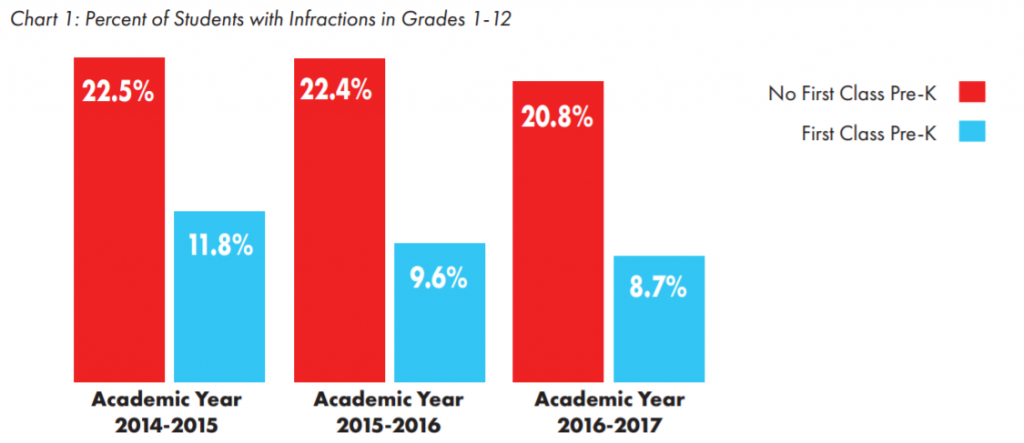Children who have participated in Alabama’s First Class Pre-K program, a voluntary, public early education program are about half as likely to be involved in disciplinary problems throughout their school careers than students who didn’t participate in First Class Pre-K, and the most pronounced differences between the two groups is evident in the students’ middle and high school years, according to new analysis of discipline data.
The analysis was conducted by the First Class Pre-K Research Evaluation Team, a multi-disciplinary group of researchers that includes faculty and staff from the UAB School of Public Health, UAB School of Education, and PARCA. The Alabama Department of Early Childhood Education provides grant funding for the research in order to provide ongoing, rigorous assessment of the First Class Pre-K’s effectiveness.
The research team analyzed data provided by the Alabama State Department of Education which included disciplinary records of over 530,000 infractions for three academic years 2014-2015, 2015-2016, and 2016-2017. Data were matched with the records for all individual public school students who were enrolled over the time period. The analysis found that from the time they entered first grade, former First Class Pre-K students were less likely to be involved in the serious disciplinary violations tracked by the state records. The difference in the discipline rates of the First Class Pre-K students compared to other students actually widened in the upper grades. These results were consistent across all three years examined. For a more detailed description of the research, click here.

